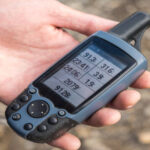An event secretary plays a pivotal role in ensuring that events, whether corporate conferences, weddings, or community gatherings, run seamlessly. If you are looking for insights into what an event secretary does, the skills required, and how this role supports event management teams, you’ve come to the right place. This article will provide a comprehensive guide, covering responsibilities, daily tasks, career paths, and tips for excelling as an event secretary.
Who is an Event Secretary?
An event secretary is an administrative professional specialized in supporting the planning, coordination, and execution of events. They work closely with event planners, managers, and clients to ensure smooth communication, accurate scheduling, and flawless organization. Unlike general administrative assistants, event secretaries focus specifically on tasks related to event management, making them indispensable in any event team.
Event secretaries are often responsible for:
- Maintaining event schedules and timelines
- Coordinating with vendors and venues
- Managing guest lists and RSVPs
- Preparing detailed reports and documentation
- Supporting budgeting and cost management
Their work ensures that every aspect of an event—from invitations to post-event follow-ups—is executed efficiently.
Key Responsibilities of an Event Secretary
The responsibilities of an event secretary can vary depending on the size and type of event. Below is a detailed table outlining typical tasks:
| Responsibility | Description | Importance |
|---|---|---|
| Scheduling & Calendar Management | Organizes timelines, meetings, and event schedules for planners and clients. | Ensures deadlines are met and avoids conflicts. |
| Communication | Acts as a liaison between clients, vendors, and staff. | Maintains clarity and coordination. |
| Documentation & Record-Keeping | Prepares reports, contracts, and financial records. | Provides accountability and transparency. |
| Budget Tracking | Monitors expenses, invoices, and payments. | Helps keep events within financial limits. |
| Guest Management | Manages RSVPs, invitations, and seating arrangements. | Improves attendee experience and logistics. |
| Vendor Coordination | Communicates with caterers, decorators, and suppliers. | Ensures services are delivered as planned. |
| On-Site Support | Assists with check-ins, signage, and real-time problem-solving. | Prevents operational hiccups during events. |
These responsibilities highlight why the event secretary is a linchpin in the success of any event.
Essential Skills for an Event Secretary
To excel in this role, an event secretary must possess a combination of technical and interpersonal skills. The table below categorizes the essential skills:
| Skill Type | Examples | Benefit |
|---|---|---|
| Organizational Skills | Time management, scheduling, multi-tasking | Ensures smooth workflow and adherence to deadlines |
| Communication Skills | Written and verbal communication, email etiquette | Facilitates clear instructions and coordination |
| Attention to Detail | Checking contracts, verifying guest lists | Prevents errors that could affect the event |
| Technical Skills | MS Office, event management software, online registration tools | Streamlines administrative and reporting tasks |
| Problem-Solving | Quick resolution of unexpected issues | Minimizes disruptions during events |
| Interpersonal Skills | Collaboration, customer service | Enhances relationships with clients and vendors |
| Financial Literacy | Budgeting, invoice tracking | Helps manage costs and reporting effectively |
These skills ensure that an event secretary can navigate the multifaceted nature of events, where precision and adaptability are critical.
Daily Workflow of an Event Secretary
A typical day for an event secretary combines administrative duties, coordination, and on-site support. Here is an illustrative breakdown:
- Morning Tasks: Review the day’s schedule, respond to emails, confirm appointments with vendors.
- Midday Tasks: Update guest lists, check budgets, and prepare documents for meetings.
- Afternoon Tasks: Assist in coordinating logistics, conduct follow-ups with suppliers, update event management software.
- Evening Tasks: Wrap up reports, prepare post-event documentation, and ensure all deadlines for the day are met.
This workflow demonstrates that the role is dynamic and requires balancing multiple responsibilities simultaneously.
Tools and Technology for Event Secretaries
Modern event secretaries leverage digital tools to optimize efficiency. These include:
| Tool Type | Examples | Function |
|---|---|---|
| Scheduling Tools | Google Calendar, Outlook | Organizes meetings and reminders |
| Event Management Software | Eventbrite, Cvent | Handles registration, ticketing, and attendee tracking |
| Document Management | Google Drive, Dropbox | Stores contracts, reports, and presentations |
| Communication Tools | Slack, Zoom, Microsoft Teams | Facilitates real-time coordination |
| Financial Tools | QuickBooks, Excel | Tracks expenses, generates reports |
| Design Tools | Canva, PowerPoint | Prepares invitations, agendas, and promotional materials |
Mastering these tools allows an event secretary to work efficiently, reduce errors, and support the event team effectively.
How to Become an Event Secretary
Becoming an event secretary typically involves a combination of education, experience, and skill development. Steps include:
- Education: A diploma or degree in business administration, hospitality management, or communications provides a solid foundation.
- Training: Courses in event planning, project management, or secretarial skills are advantageous.
- Experience: Internships, volunteer work, or administrative roles in event management companies enhance practical knowledge.
- Skill Development: Strong organizational, communication, and technical skills are essential for success.
- Professional Networking: Joining industry associations or attending events builds connections that can lead to career advancement.
Advantages of Hiring an Event Secretary
Organizations benefit significantly from employing a skilled event secretary. Key advantages include:
- Efficient Planning: Ensures timelines and logistics are managed systematically.
- Error Reduction: Prevents mistakes in guest lists, schedules, and vendor coordination.
- Enhanced Client Experience: Provides professional support and ensures smooth communication.
- Budget Management: Helps keep event costs within financial limits.
- Stress Reduction: Frees event managers to focus on creative and strategic elements.
The role is particularly valuable for large-scale events where attention to detail and coordination are critical.
Challenges Faced by Event Secretaries
Like any profession, event secretaries encounter challenges, including:
- High-Pressure Environment: Events often have tight schedules, requiring rapid decision-making.
- Last-Minute Changes: Unexpected cancellations, vendor issues, or weather disruptions can create stress.
- Long Hours: During events, secretaries may work extended hours to ensure smooth execution.
- Technology Dependence: Learning and managing multiple software tools can be demanding.
- Client Expectations: Balancing multiple stakeholder expectations requires diplomacy and strong communication skills.
Despite these challenges, the role is rewarding and offers ample opportunity for professional growth.
Career Growth Opportunities
An event secretary can grow into higher-level positions within the event management field, such as:
- Event Coordinator: Oversees overall event planning and execution.
- Event Manager: Manages multiple events, teams, and budgets.
- Executive Assistant in Event Management Firms: Supports senior executives in strategic event planning.
- Specialized Roles: Such as wedding planners, corporate event managers, or conference organizers.
Continuous learning and skill development are key to advancing in this career path.
Tips for Excelling as an Event Secretary
- Prioritize Organization: Maintain detailed records, schedules, and checklists.
- Communicate Clearly: Ensure all team members and vendors are informed promptly.
- Stay Adaptable: Be ready to handle last-minute changes calmly.
- Leverage Technology: Use tools for scheduling, budgeting, and documentation efficiently.
- Maintain Professionalism: Interact politely with clients, vendors, and attendees.
- Continuous Learning: Attend workshops, webinars, and courses to stay updated.
These tips help event secretaries maintain high performance and contribute meaningfully to successful events.
Sample Event Secretary Job Description
Job Title: Event Secretary
Location: [City, State]
Job Summary:
The Event Secretary will provide administrative support to the event management team, ensuring seamless planning, coordination, and execution of events.
Key Responsibilities:
- Maintain event schedules and calendars
- Communicate with clients, vendors, and staff
- Prepare reports, contracts, and financial documents
- Track budgets and expenditures
- Manage guest lists and RSVPs
- Assist with on-site event support
Required Skills:
- Excellent organizational and time-management skills
- Strong written and verbal communication
- Proficiency in MS Office and event management software
- Ability to multitask and solve problems efficiently
- Attention to detail and professionalism
Qualifications:
- Diploma or degree in business administration, hospitality, or related field
- Previous administrative or event coordination experience preferred
Why Event Secretaries Are Crucial in Modern Events
Modern events are complex, often involving multiple vendors, attendees, and logistical components. An event secretary ensures:
- Smooth coordination between various stakeholders
- Accurate record-keeping and timely reporting
- Adherence to deadlines and budgets
- Enhanced overall event experience for attendees and clients
Their role reduces stress for planners and increases the likelihood of a successful, well-organized event.
FAQs About Event Secretaries
1. What qualifications are required to become an event secretary?
A diploma or degree in business administration, hospitality, or communications is helpful, along with strong administrative skills and event experience.
2. How much does an event secretary earn?
Salaries vary by region, experience, and organization type, typically ranging from $35,000 to $60,000 annually for mid-level positions.
3. Can an event secretary work remotely?
While many tasks can be done remotely, on-site support during events is often required. Hybrid arrangements are common.
4. What is the difference between an event secretary and an event coordinator?
An event secretary focuses on administrative support, documentation, and logistics, while a coordinator oversees broader event planning and decision-making.
5. What tools should an event secretary master?
Event secretaries should be proficient in MS Office, Google Workspace, event management software like Eventbrite or Cvent, and budgeting tools like Excel or QuickBooks.
In conclusion, the event secretary is a critical professional ensuring that every detail of an event is meticulously planned and executed. From managing schedules to coordinating vendors and handling guest logistics, their work supports successful, memorable events. For anyone pursuing a career in event management or administrative support, understanding the role and mastering the associated skills is essential. With organization, communication, and adaptability, an event secretary can thrive in this dynamic, rewarding field.











